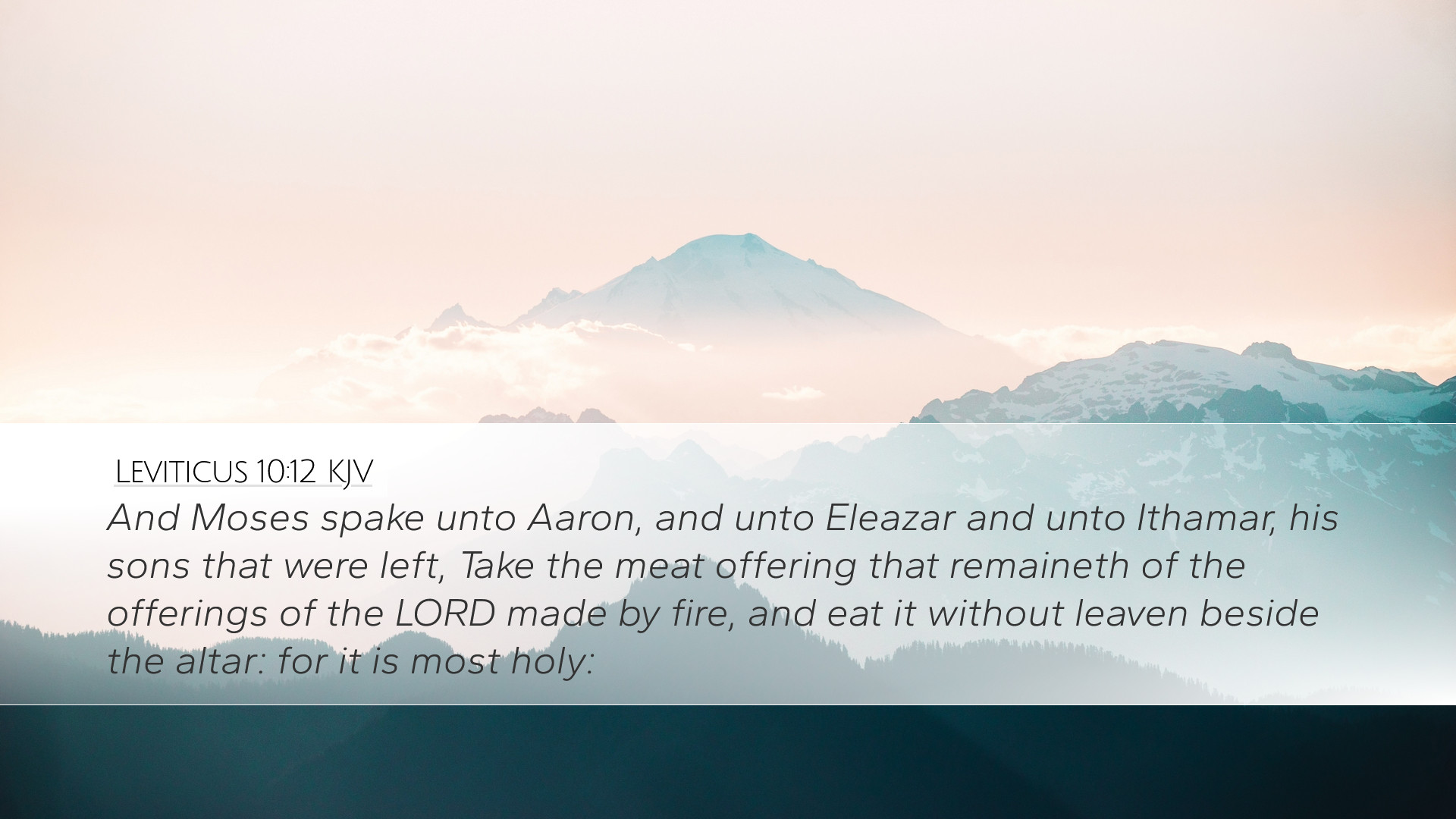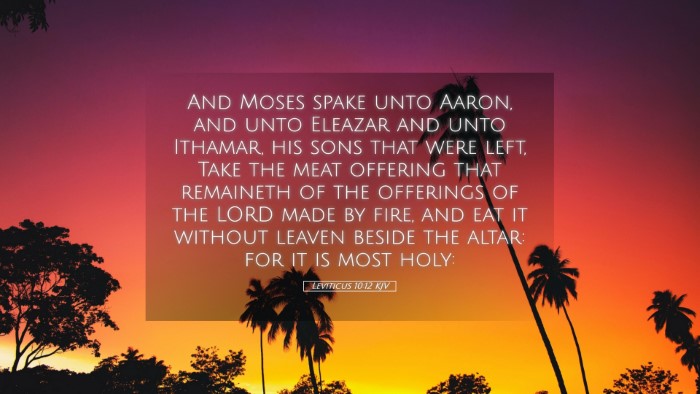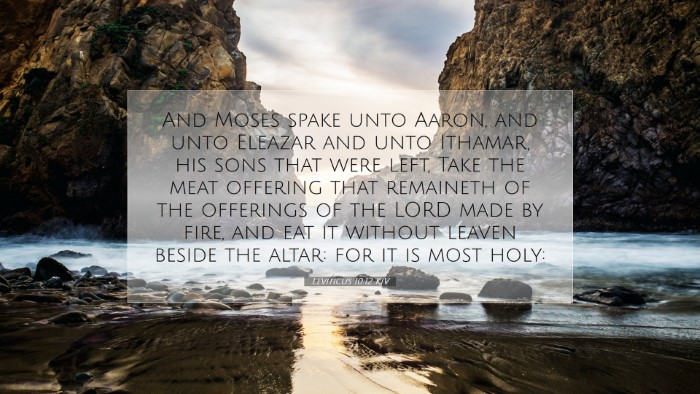Commentary on Leviticus 10:12
Verse: "And Moses spake unto Aaron, and unto Eleazar and unto Ithamar, his sons that were left, Take the meat offering that remaineth of the offerings of the Lord made by fire, and eat it without leaven beside the altar: for it is most holy."
Introduction
The context of Leviticus 10:12 arises after the tragic incident involving Nadab and Abihu, Aaron's sons, who offered unauthorized fire before the Lord, leading to their immediate death. This portion of Scripture reveals not only the gravity of improper worship but also the responsibilities of the priests within the sanctuary of God. The commentary below draws from the insights of Matthew Henry, Albert Barnes, and Adam Clarke to elucidate the message embodied in this verse.
Understanding the Context
The chapter opens on a somber note, emphasizing the consequences of irreverence in approaching God. The death of Nadab and Abihu starkly transitions into Moses’ directives to Aaron and his surviving sons. In this charge, there is a balance of judgment with responsibilities toward divine ordinances.
Medicinal versus Emotional Aftermath
Commentators reflect on Aaron's emotional state after this calamity. Matthew Henry highlights Aaron's duty to maintain integrity in worship despite personal loss, thus reminding pastors and leaders of their continual obligation to serve God faithfully, irrespective of personal trials. In contrast, Adam Clarke delves into the pastoral care that Moses extends, emphasizing the need to guide the surviving family through uncharted grief.
Significance of the Meat Offering
The directive to consume the meat offering is laden with both symbolic and practical implications.
- Holiness of the Offering: The meat offering, referred to as most holy, signifies the sanctity expected in worship. Barnes remarks on its unique position among the offerings, establishing the requirement of reverence in all acts directed towards God.
- Leaven and Symbolism: The admonishment to eat the offering without leaven links to deeper theological understandings of purity. Leaven often symbolizes sin or corruption in Scripture, aligning with the priestly call to remain untainted. Clarke notes the necessity for priestly purity, urging leaders to present an unblemished state before God.
- Proximity to the Altar: Eating beside the altar reinforces the concept of being in close communion with God. This spatial proximity denotes both reverence and the reality of God's presence, reminding leaders that their ministry should emanate from divine fellowship.
The Role of Moses and the Priestly Family
Moses plays a crucial intermediary role, presenting the instructions to Aaron, Eleazar, and Ithamar. This relationship underlines the notion of guidance through tribulation and sets an example for future leaders in terms of pastoral care and maintaining spiritual integrity.
- Instruction and Compliance: The necessity for obedience in the face of tragedy is clear. Pastors and leaders are reminded that practices must remain consistent with divine principles, as the act of eating the offering reflects fidelity to God’s commands.
- Family Dynamics in Ministry: The family connection among Aaron, Eleazar, and Ithamar portrays the importance of maintaining strong familial ties within ministry, a theme echoed throughout Scripture. Barnes points out that this communal aspect enhances accountability among leaders.
Practical Applications for Today’s Faith Community
This verse holds profound implications for modern-day pastors, theologians, and believers seeking to understand the nature of divine worship and ministry.
- Guarding Worship Integrity: The importance of sacredness in worship must be preserved. Churches today need to examine their practices to ensure alignment with Scripture, recognizing that genuine worship must be rooted in the character of God.
- Coping with Loss in Ministry: The handling of grief within church leadership should not lead to neglect of duties. Leaders are called to shepherd their congregations with integrity and faithfulness, much like Aaron learned to do.
- Encouraging Accountability: Supporting relationships among church leaders can foster accountability and encourage adherence to God's commandments, allowing for growth and correction in love.
Conclusion
Leviticus 10:12 captures a pivotal moment wherein profound loss intersects with divine instruction. The wisdom gleaned from historical commentaries teaches that leaders must navigate the complexities of worship, family dynamics, and community relationships with a commitment to holiness and reverence. As contemporary practitioners of faith, reflecting on these lessons can cultivate a church environment grounded in integrity, marked by faithful worship, and sustained through mutual accountability.


